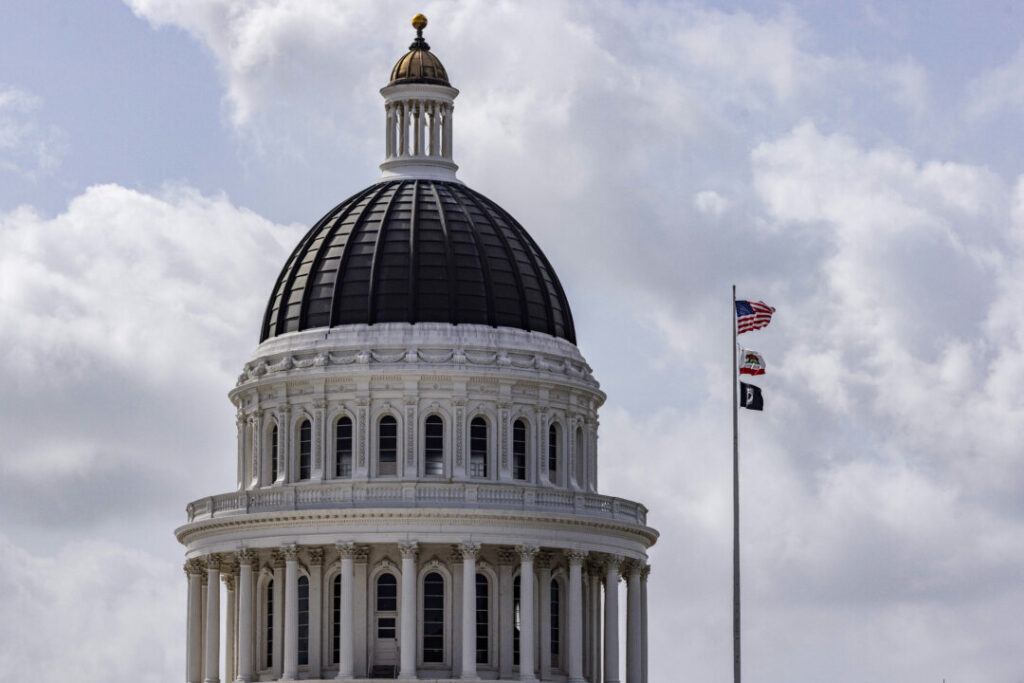
The California state capital building in Sacramento, Calif., on March 16, 2025. (John Fredricks/The Epoch Times)
California Republicans filed a second lawsuit on August 25, 2023, challenging Governor Gavin Newsom’s congressional redistricting plan. The plan is set to be presented to voters as Proposition 50 in the upcoming November elections. The legal action contends that the proposal breaches the state Constitution, which mandates that redistricting maps be developed by the politically neutral California Citizens Redistricting Commission.
At a press conference announcing the lawsuit, Corrin Rankin, chairwoman of the California Republican Party, emphasized the importance of adhering to constitutional guidelines. “This is an issue about good governance in the state of California,” she stated. “Californians deserve to have the right to choose our legislators.”
The backdrop to this lawsuit involves a legislative maneuver by the California Legislature to expedite the ballot measure for November 4, 2023. Proposition 50 aims to temporarily override the independent commission’s authority to draft the congressional maps, a move state Democrats argue is necessary to counter similar redistricting efforts in Texas that favor Republican candidates.
Under the proposed changes, California’s congressional districts could face significant alterations, impacting the political landscape as the state prepares for the next election cycle. Newsom and his party have positioned the proposition as a response to perceived inequities in redistricting practices occurring in other states, particularly those controlled by Republican majorities.
While the lawsuit is part of a broader political strategy, it highlights the contentious nature of redistricting in the United States, where the drawing of district lines can significantly influence election outcomes. California Republicans are advocating for what they believe is a fair and transparent process, while state Democrats counter that their approach is necessary given the current political climate.
As the legal proceedings unfold, the implications of this lawsuit could extend beyond California, reflecting a national debate over electoral fairness and governance. With the November ballot approaching, the stakes are high, as voters will ultimately decide the future of California’s congressional districts.







